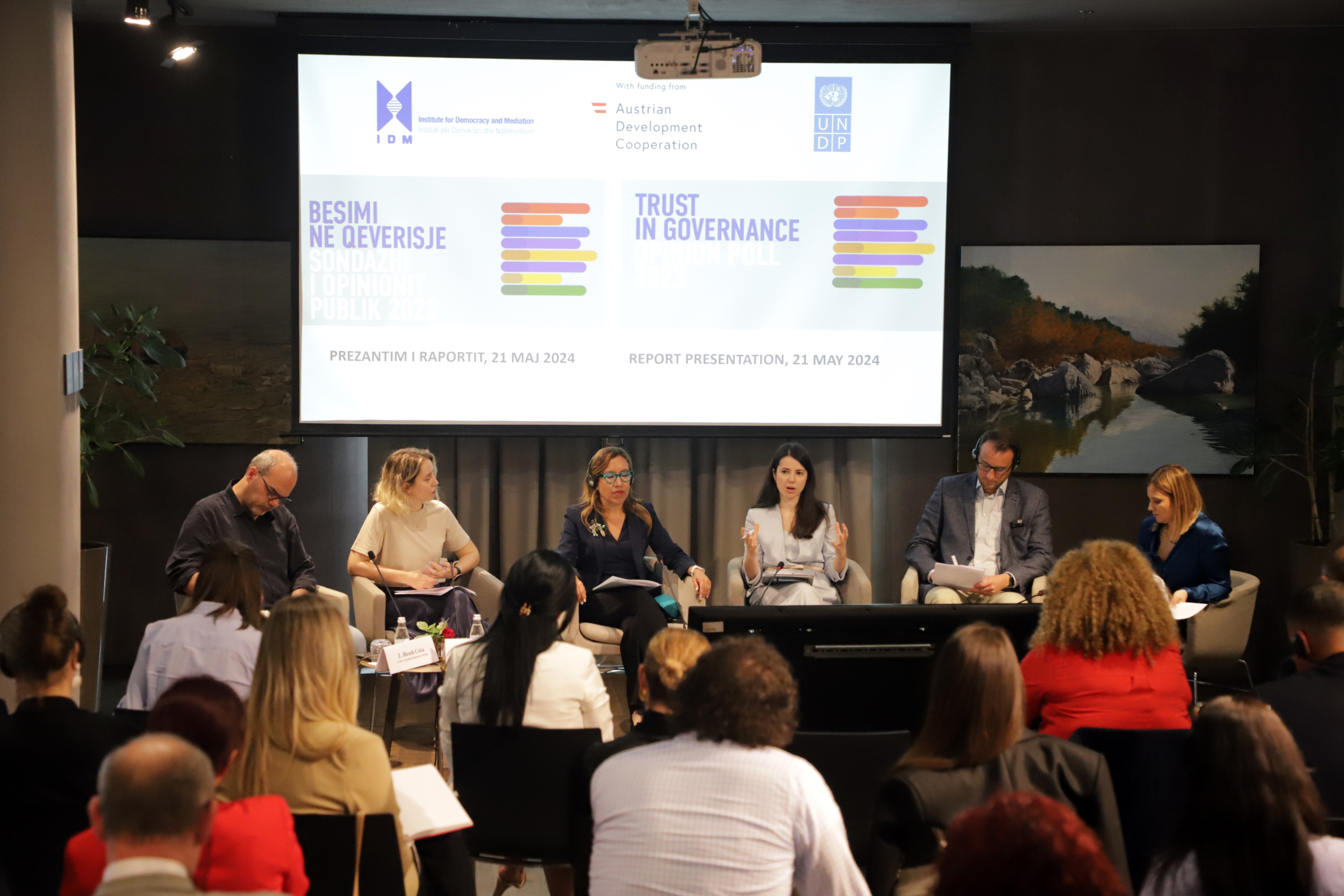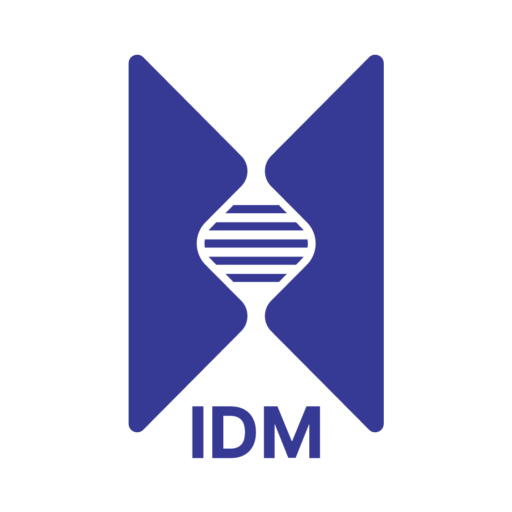
Presentation of “Trust in Governance 2023” Opinion Poll Findings
– Tirana, 21 May 2024 –
The findings of the “Trust in Governance 2023” Opinion Poll were presented today in Tirana. They explore public perceptions on issues such as trust in public institutions, institutional transparency and accountability, the level of citizen engagement in policy and decision-making, satisfaction with public service delivery, and enforcement of non-discriminatory laws and policies.
The “Trust in Governance 2023”, Opinion Poll’s eleventh edition, was conducted in October and November 2023, using a randomly selected nationally representative sample of 2,500 respondents.
International institutions have consistently earned higher levels of trust compared to national institutions in focus. Political parties, the courts, prosecution, and parliament consistently ranked as the least trusted institutions over the years.
The 2023 opinion poll findings show that the most trusted institutions are international organizations such as the UN (74.3%), and the EU (74.7%). Among domestic bodies, religious institutions (67%) are the most trusted, followed by the Special Prosecution Office against Organized Crime and Corruption (SPAK) (60.3%) and civil-society organizations (55.7%).
Political parties (25.5%), parliament (29.1%), the courts (33.4%), and the prosecution (33.7%) ranked as the least trusted institutions in 2023.
SPAK, included in the survey for the first time in 2022, witnessed a notable increase of 10 percentage points compared to the previous year.
Regarding the reformed justice system, half of the participants (50.2%) fully or generally agreed that it contributes positively to the country’s development. In contrast, approximately 44.9% of citizens generally disagreed or did not agree at all.
Views on transparency and accountability in both central government and municipalities remained consistent with the previous year’s findings. In 2023, more than half of Albanians surveyed saw both levels of government as lacking transparency (59% for central government and 60.2% for municipalities) and accountability (62.7% for central government and 59.3% for municipalities).
The opinion poll data indicates that corruption remains a significant concern. In 2023, the majority of participants (81.3%) consider petty corruption to be widespread or very widespread, and a similar percentage (81.5%) views grand corruption as widespread. Confidence in the prosecution’s capability to handle corruption cases remains low, with 62.8% lacking confidence in the prosecution of grand corruption and 56.8% in petty corruption cases.
The 2023 survey included a question evaluating the public perception of how effective public institutions and structures are at combating corruption in the country. The data reveals that SPAK is the institution that citizens perceived was most effective in addressing corruption, with 60.9% expressing either great trust or a basic level of trust.
Regarding citizen engagement, the percentage of the Albanian citizens interested in participating in decision-making has remained steady at 45.2%. However, actual participation rates in government consultation processes and demonstrations have consistently remained low.
Additionally, approximately 38.3% of Albanians wanted to emigrate in 2023, citing reasons such as employment, higher wages, and pursuing better education, consistent with the 2022 data.
Notably, there was a significant decrease in the perception of safety in everyday life, with 67.6% of respondents feeling unsafe in 2023 compared to 59.3% in 2022. The main drivers of perceived insecurity were identified as crime, health issues, and employment insecurity.
In the 2023 survey, Albanians were asked about government priorities for the next five years. The respondents highlighted health (54%) and education (38%) as important areas for attention, followed by tourism, transport infrastructure, and agriculture.
Satisfaction with public service delivery remains mixed. On average, four out of ten citizens (39.3%) reported being satisfied with core public services. Satisfaction rates varied across different services, with water supply (47.2%), cleaning services (47.3%), education (46.2%), and public health services (44%) receiving higher satisfaction ratings compared to police (35.4%), public transport (31.8%), and judicial services (25.5%). On the other hand, among Albanian citizens who used administrative services in 2023, 59% reported being satisfied or very satisfied, particularly in the case of those related to civil registry (71.6%), social insurance (66.7%), and road transport (68.3%).
The survey also indicated a high level of awareness of electronic services provided by e-Albania, with 92% of respondents aware of the platform. Among those aware, 75.6% utilized the services in 2023, with the majority considering e-Albania to be functional (84.7%) and providing citizens with needed assistance (59.7%). However, less than half perceived the platform offered opportunities to express comments and suggestions.
A significant proportion of respondents who used the e-Albania portal reported being able to do so independently (45.4%), while others sought assistance either rarely (22.2%), usually (18.8%), or always (13.6%).
Regarding personal data protection, the vast majority of respondents considered it important (90.7%). However, only 35% expressed trust in public actors’ capability to manage personal electronic data, while 30.8% expressed trust in the private sector.
The courts and prosecution are perceived as the most politically influenced institutions, with 35.5% and 35.3% of respondents rating them as ‘highly’ or ‘extremely influenced’. However, this perception has decreased from 61% and 59% in 2019 to 36% and 35% respectively in 2023.
Gender equality perceptions remain relatively positive, with 59.4% of the Albanians agreeing that there is equality between men and women. However, 14.3% of the Albanians reported being treated differently based on gender, age, ethnicity, sexual orientation, or disability.
Click to download the report in English and Albanian.
The Opinion Poll, initially launched in the framework of the Open Government Partnership, has been carried out annually by the Institute for Democracy and Mediation (IDM) since 2013, with support from UNDP. The 2023 edition was conducted in the framework of the CSDA Project – “Consolidation of Citizen Centric Public Service Delivery in Albania”, a donor pool fund implemented by the Government of Albania in partnership with UNDP, and with Austrian Development Cooperation (ADC) as key contributor, together with UNDP.


